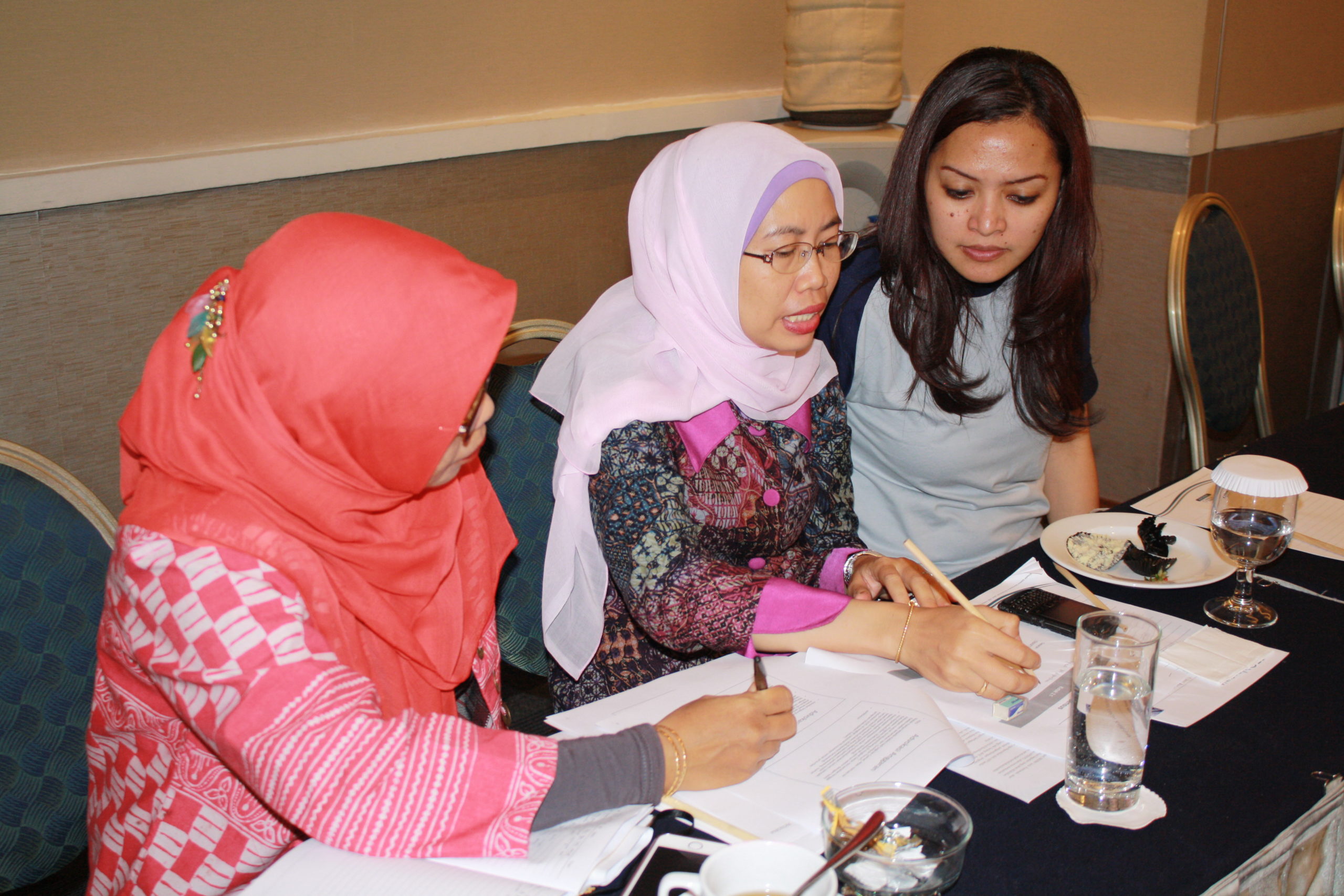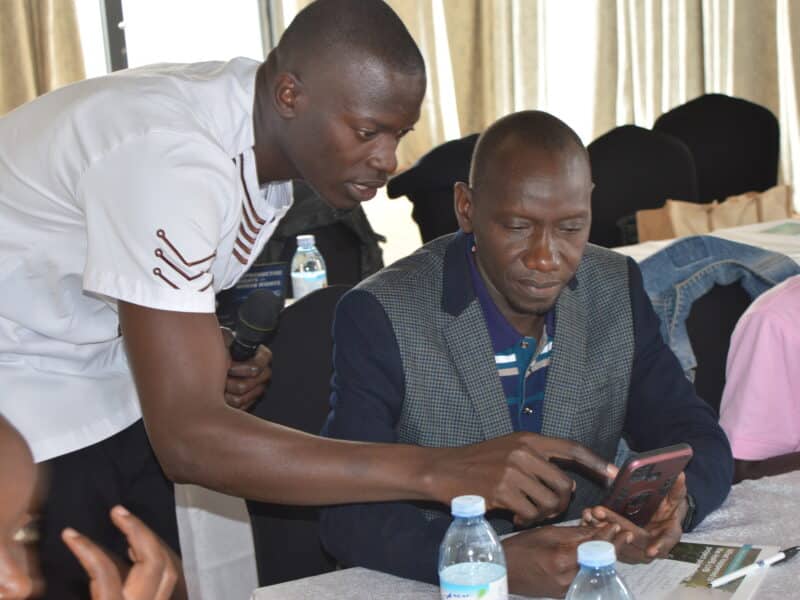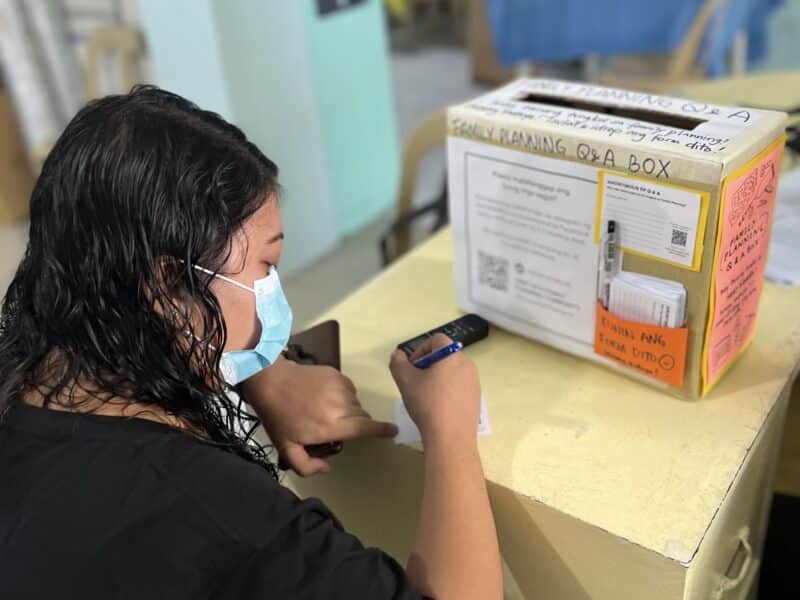Research shows that funding for and uptake of long-acting and permanent contraceptive methods (LAPMs) significantly increased in six districts in East Java and West Nusa Tenggara as a result of evidence-based advocacy. After three years of targeted advocacy efforts led by the Improving Contraceptive Method Mix (ICMM) program, contraceptive users in ICMM districts began shifting away from shorter-acting methods towards LAPMs as compared to users in control districts (which had no advocacy intervention). These include contraceptive implants, intrauterine devices (IUDs), and male and female sterilization.
Funded by the U.S. Agency for International Development (USAID) and the Australian Department of Foreign Affairs and Trade (DFAT), ICMM was led by the Indonesia office of the Johns Hopkins Center for Communication Programs (CCP), in partnership with Yayasan Cipta Cara Padu (YCCP), the Center for Health Research, Universitas Indonesia, the Directorate of Maternal Health at the Indonesian Ministry of Health and BKKBN.
Ensuring that women have access to the contraceptive method of their choice can reduce unintended and high-risk pregnancies and prevent maternal deaths in Indonesia. The current maternal mortality rate in Indonesia is among the highest in Asia and rising. According to ICMM baseline data, more than half of Indonesian couples who want to stop childbearing still rely on short-acting methods such as oral contraceptive pills and injectables. This mismatch of method with fertility intentions points to the lack of availability and accessibility of LAPMs. ICMM sought to address this concern through targeted district-level advocacy – that is, working with decision makers to revitalize local advocacy groups and make the case for greater family planning budgets and increased availability and training for long-acting methods.
After leaders in all six ICMM districts increased family planning funding and implemented supportive policies, the study showed the odds of married women using LAPMs was higher—1.12 times the odds in East Java and 1.31 times the odds in West Nusa Tenggara. In control districts, there was no significant change. These increases showed that women in ICMM districts were more likely to use LAPMs after the advocacy intervention than they were before it.
“The results from ICMM are significant, because they show that advocacy is effective to reinvigorate family planning programs, expand the method mix, and more fully meet the family planning needs of women throughout Indonesia,” said Yunita Wahyuningrum, Project Director of ICMM. “Moving forward, we hope that this district-level approach can be scaled up to help the Indonesian government achieve their Family Planning 2020 (FP2020) goals.”
The ICMM program used the Advance Family Planning-Indonesia (AFP-Indonesia) approach, which includes a network map of stakeholders, training on cost projection for contraception, and use of AFP’s SMART advocacy tool. ICMM was conducted in three districts in East Java (Kediri, Lumajang, and Tuban) and three districts in West Nusa Tenggara (Lombok Barat, Lombok Timur, and Sumbawa).
Working in partnership with local decision makers, ICMM showed that advocacy improves political commitment to family planning. In addition to increasing use of long-acting contraception, ICMM districts also had increased levels of district and local support for family planning and coordination of services. Since 2013, budget allocations at the district level for family planning IEC (Information, Education, and Communication) activities and community outreach increased at a statistically significant rate in ICMM intervention districts from an average of Rp 985 million (about 74 thousand USD) in 2013 to an average of Rp 1.3 billion (about 100 thousand USD) in 2016.
This advocacy approach was also effective at engaging stakeholders at the sub-district and village levels, and helped implement effective family planning programs in the decentralized context. In 2012, the Indonesian House of Representatives passed the “Village Law No.6/2014”— to ensure that the central government transfers development funds directly to villages in order to fulfill basic needs. In light of this law, ICMM conducted advocacy at the village level to ensure that some of these village funds were used for family planning programs. Through the ICMM program, more than 1,400 “Family Planning Village Teams” have been revitalized, and more are being added. Village budget allocations for family planning increased by over 300% — from Rp 2.2 billion (about 165 thousand USD) to Rp 6.7 billion (about 503 thousand USD)– since 2015. These reflect local commitment to family planning as a public health need rather than external funds.
ICMM activities were designed to help the Government of Indonesia effectively uphold their commitment to revitalize and improve the country’s family planning program. In addition to improving financial commitments at the district and sub-district levels, ICMM also trained midwives on the latest contraceptive technology updates, which helps ensure that they can provide a wide range of family planning methods.
While Indonesia was once hailed as a family planning success story, progress has stalled over the past decade. Although 58% of reproductive age couples use modern contraception (DHS, 2012), women often have difficulties accessing a wide range of methods. Although Indonesian couples are more likely to want to limit births than space them, most women use short-acting methods – primarily injectable contraceptives (Indonesia DHS 2012). LAPMs are often not available or accessible. A lack of method choice often results in discontinuation of contraceptive use, and eventually unintended pregnancy.
“One explanation for Indonesia’s halted progress in family planning is decentralization, which began in Indonesia about 15 years ago,” explained Doug Storey, Principal Investigator of the ICMM study with Johns Hopkins Bloomberg School of Public Health and CCP Director for Communication Science and Research. “Decentralization has resulted in uneven institutional support for family planning programs at the district and village levels. The advocacy approach applied through ICMM can help overcome the effects of decentralization and ensure that family planning programs are strong throughout the country.”
Mardiyanti, a family planning champion in the Lumajang District, explained how advocacy training help make her efforts more effective: “Before, when we wanted our head of office to decide something, we would just ask. We didn’t really consider our target audience. From ICMM, I learned that when we are advocating for something with an individual, we need to know the person’s background. We need to know how to speak to them. We need to prepare answers for questions that they will ask. I learned a lot from this program, especially about advocacy.”





